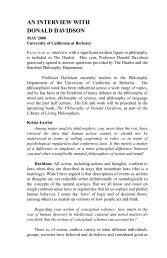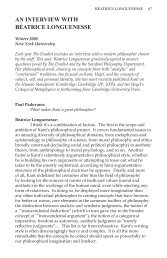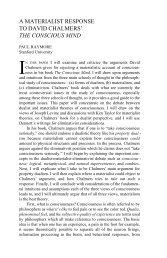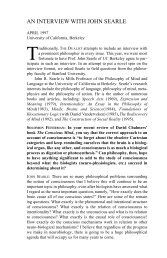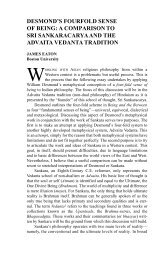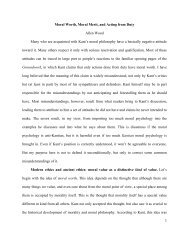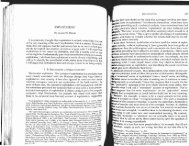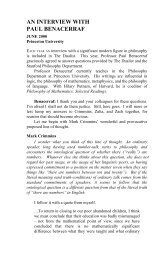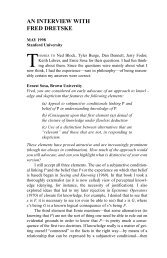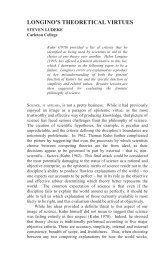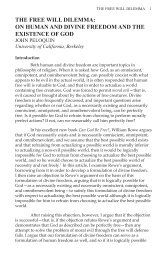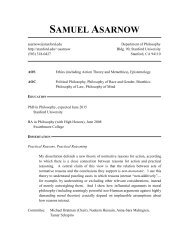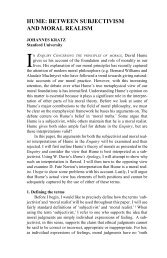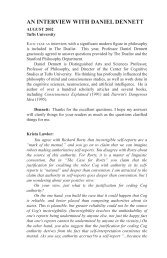The Independence of Right from Ethics Allen Wood Right and ethics ...
The Independence of Right from Ethics Allen Wood Right and ethics ...
The Independence of Right from Ethics Allen Wood Right and ethics ...
Create successful ePaper yourself
Turn your PDF publications into a flip-book with our unique Google optimized e-Paper software.
therefore be unlimited if others are to be externally free as well. This is the ground <strong>of</strong> thequalification: “consistent with other dem<strong>and</strong>s <strong>of</strong> reason,” that must be added to the rationaldem<strong>and</strong> for external freedom that each rational being must make.<strong>The</strong> ends <strong>of</strong> morality are objective or binding on us because they are ends we recognize asrationally valid irrespective <strong>of</strong> the particular wishes, desires, ends or interests <strong>of</strong> individuals. <strong>The</strong>happiness <strong>of</strong> each individual has a moral claim on other individuals because it has a value thatcan be recognized by any rational being. Persons are ends in themselves because they have avalue that is not conditional on anyone’s empirical wishes or desires but makes an impartialclaim on us through a comm<strong>and</strong> <strong>of</strong> reason. Something analogous, but quite distinct, is true <strong>of</strong> theother constitutive necessity <strong>of</strong> rational nature I have just identified – namely, its requirement thatit be free to choose actions in furtherance <strong>of</strong> ends set by it rather than having its actions forced toserve ends it does not share.Coercion is a restriction on external freedom: To coerce someone is to force them to act ina way that conforms to your will rather than theirs, <strong>and</strong> makes their actions serve ends you haveset which are not ends they have set. Kant’s theory <strong>of</strong> right is based on the idea that the only waycoercion could ever be justified is in the name <strong>of</strong> protecting external freedom – the very freedomthat coercion annuls, infringes or limits. A person cannot be justifiably coerced for the sake <strong>of</strong>the value <strong>of</strong> any end whatever: neither the happiness <strong>of</strong> another, nor the happiness <strong>of</strong> all, noreven the happiness <strong>of</strong> the person who is coerced, could provide an adequate ground for thecoercion <strong>of</strong> a free <strong>and</strong> rational being. Such a reason could consist only in the fact that thecoercion in question is required in order to protect the external freedom <strong>of</strong> rational agents ingeneral – rightful freedom, external freedom according to universal law. Kant takes it to be ananalytic judgment that coercion that protects rightful freedom is itself in accord with right (MS8



